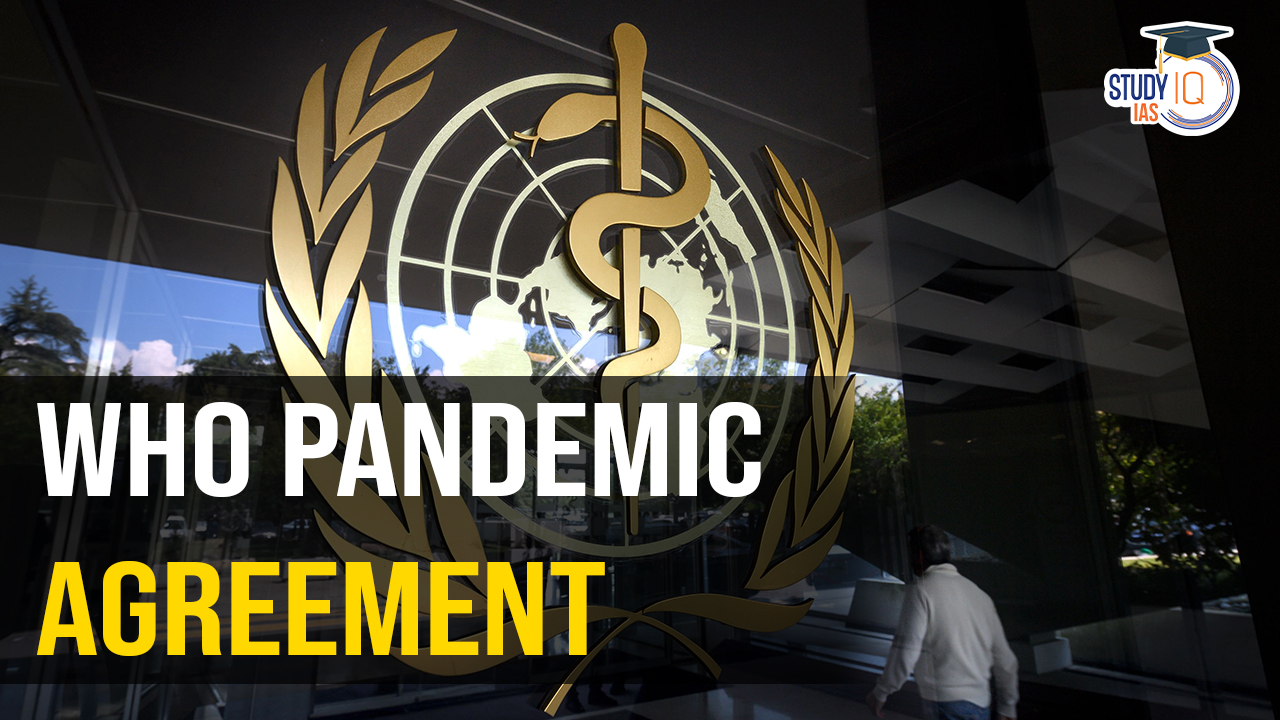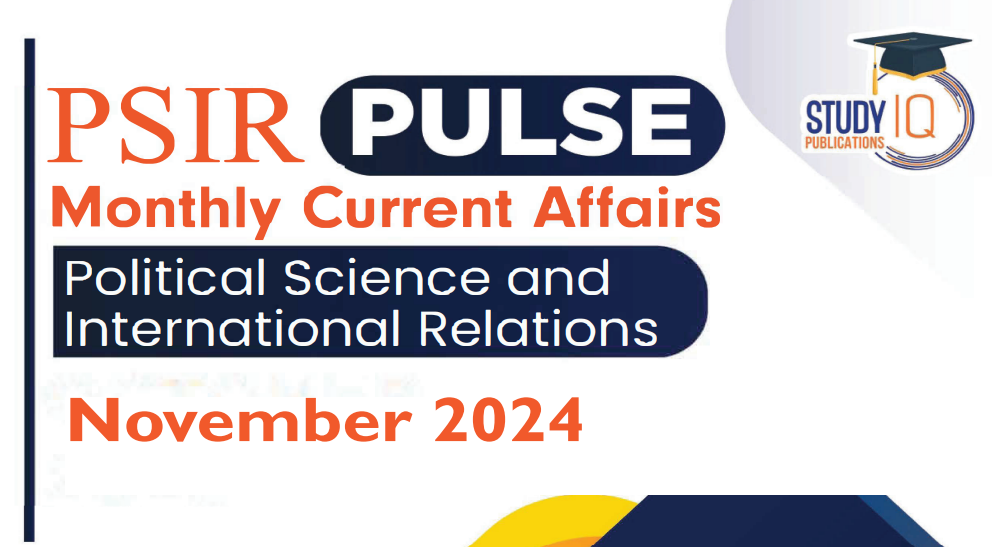Table of Contents
Context: The World Health Organization Pandemic Agreement might be in jeopardy of failing.
WHO Pandemic Agreement: An Overview
- Origin: Announced in March 2021 by world leaders, it’s being developed by the World Health Organization (WHO).
- Goal: Strengthen pandemic prevention, preparedness, and response, with a focus on equity.
- Respond to the disparities highlighted by the COVID-19 pandemic, including preparedness and international coordination.
Key Features
- Addresses issues like:
- Pathogen surveillance
- Healthcare workforce capacity
- Supply chain and logistics
- Technology transfer for vaccines, diagnostics, and treatments
- Antimicrobial resistance management
- Strengthening health systems and sanitation
- Universal health coverage
- Establishment of a WHO Pathogen Access and Benefit-Sharing (PABS) System for sharing pathogens and research benefits.
- Proposed a Conference of Parties (COP) to oversee implementation.
Concerns with the WHO Pandemic Agreement
- Data Sharing vs. Benefit Sharing:
- Developing countries’ concern: countries hesitate to share pathogen data (spread and evolution) without guaranteed access to research benefits like vaccines.
- COVID-19 impact: “Vaccine nationalism” during the pandemic worsened this concern.
- The WHO Pathogen Access and Benefit-Sharing (PABS) System:
- Proposed solution: A mechanism proposes a “quid pro quo” mechanism requiring countries to share genome sequence information with WHO in exchange for:
- 10% free diagnostics, therapeutics, and vaccines.
- 10% at not-for-profit prices.
- Disagreement:
- Developing countries: A robust PABS system, especially for low- and middle-income nations, is crucial for equitable access to medical countermeasures.
- Developed countries & pharmaceutical industry: Unhappy with the proposed benefit-sharing terms.
- Proposed solution: A mechanism proposes a “quid pro quo” mechanism requiring countries to share genome sequence information with WHO in exchange for:
- Enforcement and Accountability:
- Concern: The Agreement might be ineffective without strong enforcement mechanisms.
- Example: Existing International Health Regulations (legally binding) failed to prevent issues during COVID-19 like:
- Unjust travel/trade restrictions.
- Hoarding of vaccines and medical supplies.
- Uncertainties:
- Whether negotiators will agree on a decision-making body (COP with secretariat).
- Effectiveness of such a body.
- Intellectual Property (IP) Waivers: A proposal requiring companies receiving public funding to waive or reduce IP royalties on their products is a sticking point.
We’re now on WhatsApp. Click to Join
Looking Ahead
- Negotiation Deadline: The deadline for this agreement is set for the 77th World Health Assembly in May 2024.
- Challenges:
- Reaching consensus, potentially leading to a watered-down agreement.
- Wording around contentious issues like IP waivers might be weakened using phrases like “national circumstances” and “best endeavour”.
- Importance of Agreement:
- A critical step for rebuilding trust and international coordination.
- Acknowledges the global nature of pandemic threats.
- Failure to reach an agreement would be a setback.


 Pariksha pe Charcha 2025, Overview, Even...
Pariksha pe Charcha 2025, Overview, Even...
 National Policy on Framework on Agricult...
National Policy on Framework on Agricult...
 How Scientists used Scotch tape to Creat...
How Scientists used Scotch tape to Creat...




















